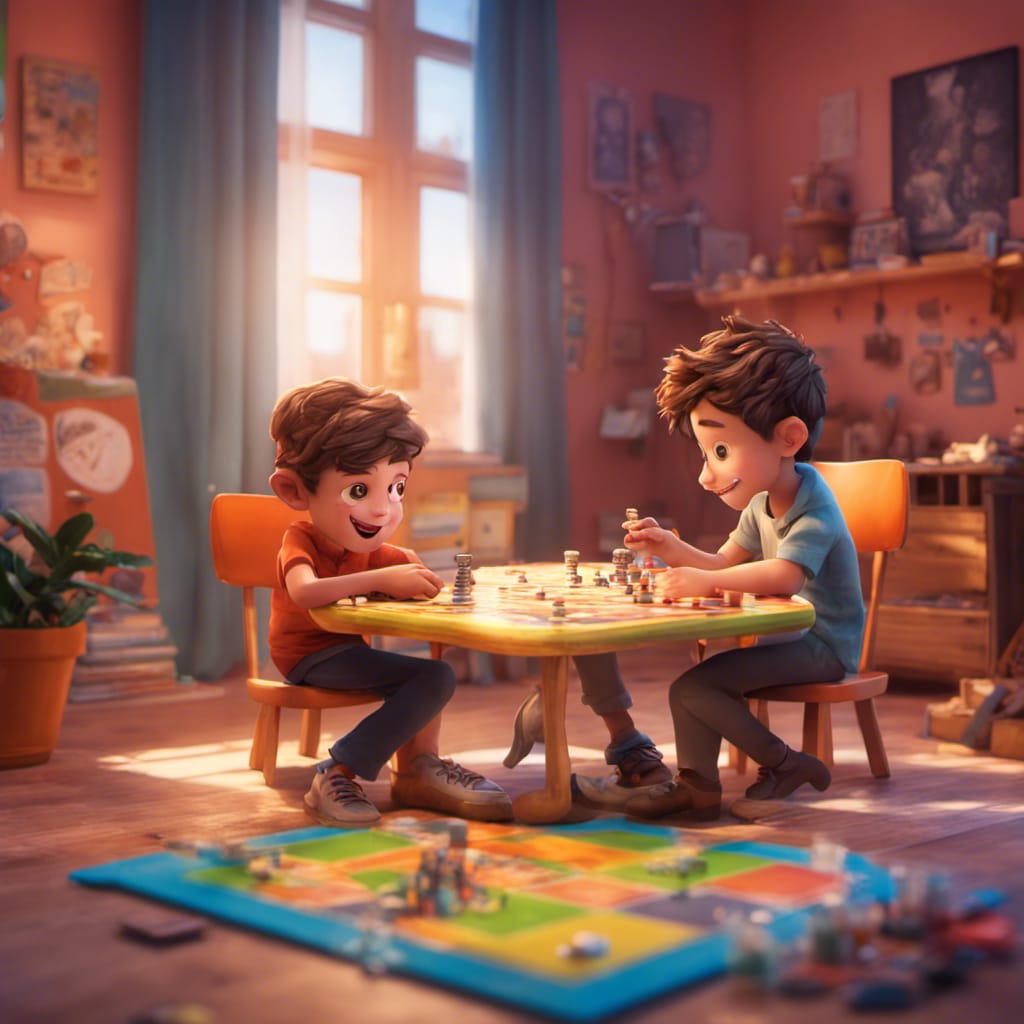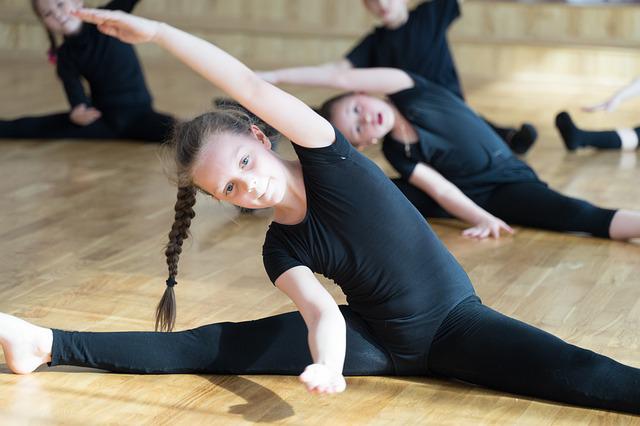We all come preprogrammed with our own set of preferences, beliefs, and ways of seeing the world. This makes us who we are. But it doesn’t mean we can’t evolve and learn new ways of thinking. In fact, that’s what helps us grow and become more conscious of our surroundings. With that realization in mind, how do you teach your child to think better, be it at home or at school?
Children learn by doing. You can’t teach a child to think better just by telling them, “You have to think this way or that way.” Instead, parents, guardians, and teachers need to show children how to think in different ways. We’ll examine how to do that effectively…
 Now, bizarrely, some parents don’t think their children are capable of thinking any better. What they believe is, “your children are just like you.” …If that’s been your default attitude, until now, perhaps it’s time to re-examine that and recognize a need to change your own thinking, first?
Now, bizarrely, some parents don’t think their children are capable of thinking any better. What they believe is, “your children are just like you.” …If that’s been your default attitude, until now, perhaps it’s time to re-examine that and recognize a need to change your own thinking, first?
Just as children need to learn to think in different ways, so do we. They’re growing up, just as we are. We all need to learn new ways of thinking so that we can better understand ourselves and the challenges of the world around us.
“What would it take to change your child’s thinking? What would it take to make her think differently? To encourage your kid to think in a more critical way? To help her to use her brilliant brain to solve problems?”
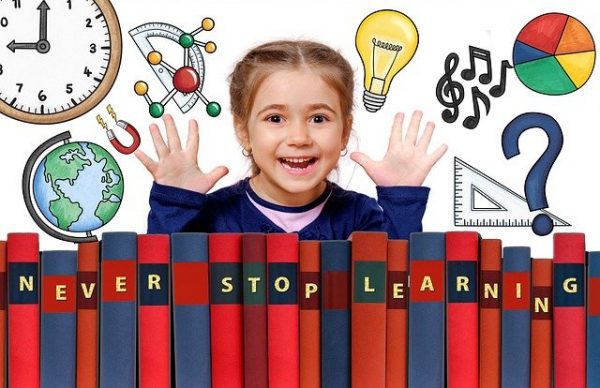
Why is thinking a skill that kids need to learn?
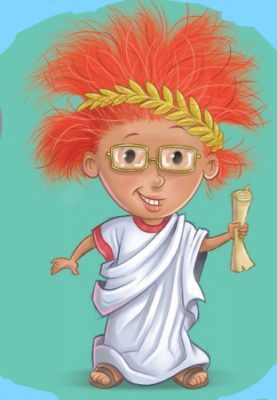
Thinking is how we come up with our own ideas and solutions to problems, and figure out ways to approach life situations that we haven’t encountered before. It makes us better at decision-making.
It’s how we come up with new ideas and perspectives, and discover things that we hadn’t known before. It’s how we learn more about the world around us, how we come to understand our surroundings better.
Thinking development in early childhood
Children develop their thinking skills over time – often by mirroring their parents and other key influencers. There are a number of ways you can help your child to improve the way they think, and the results can be seen in their ability to think in different ways and solve problems better. You can improve your child’s thinking, for example, by encouraging them to think about how different people may be thinking about the same thing. READING is paramount in helping them gain this ability.

Key #1: How READING helps improve the thinking skills of a child
Here’s why reading and reading stories are so important. Engaging stories help kids see things from different perspectives and understand things from all sides. This encourages them to think more broadly and to ask more questions.

Reading books and magazines helps children see things from different points of view, and make decisions based on their own values and beliefs. Reading and listening to stories helps kids become more empathetic, and to understand how others are feeling.
Seeing things from different perspectives helps kids to creatively ‘think outside the box’. In other words, they’re able to come up with better solutions to their problems. They’re able to think deeper and see things from more than one angle. This is what helps children become more well-rounded individuals.
Children’s thinking skills examples
Thinking skills for kids will include:
- Organizing and prioritizing
- Deciding what to focus on
- Problem-solving
- Exploring your thoughts
- Summary and evaluation
- Interpretation and evaluation
- Applying what they’ve learned
- Figuring how to do it better
- Adapting
- Dealing with different situations
- Learning to avoid thinking errors
- Thinking about possibilities
- How to think about the future
- How to think about the past
- Brainstorming creative thinking
- Why vs. How Thinking
- And more!
Encourage critical thinking with questions
In his famous poem from the Just-So story, The Elephant’s Child, Rudyard Kipling introduced us to the handy ‘serving men’ that helped him get his facts straight for his journalistic stories. You’ll remember “their names are What and Why and When, And How and Where and Who.”

As he points out, kids are pretty good at using these to ask questions relentlessly at a million miles an hour!
For critical thinking, however, kids must learn to take these 6 questions as starting points, using them to branch out and think deeper about a topic.
That’s what we encourage children to do each month in the Big Idea philosophy for kids (click for examples) section of Brilliant Brainz.
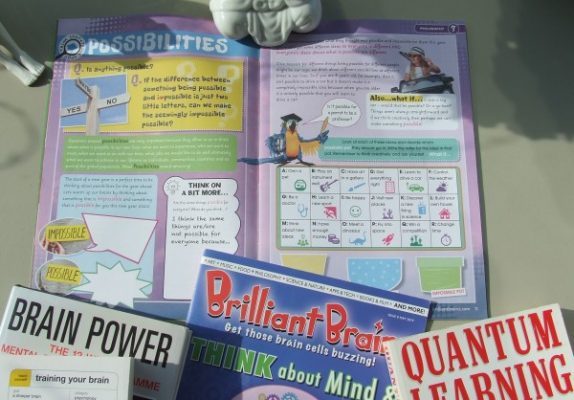
Members (readers) of our Think Club really get to grips with a topic and learn to think about it from different angles, so they make realizations on their own.
We like to think of this as an ‘Aha!’ moment for critical thinking.
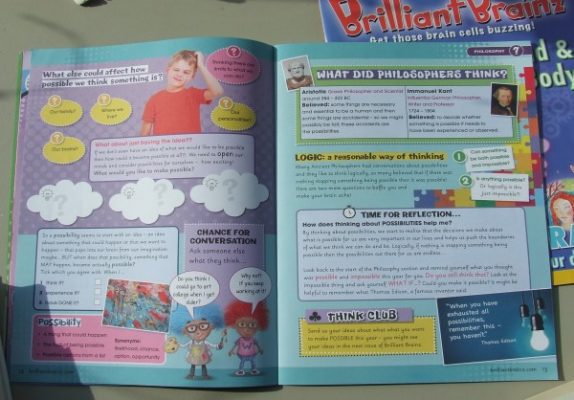
How to teach critical thinking
The Ultimate Cheat Sheet for Critical Thinking by the Global Digital Citizen Foundation takes these 6 ‘serving men’ starter questions and fleshes them out, giving you a terrific resource for showing your kids how to start critical thinking.
It outlines which questions to ask, and which to avoid. This helps children to learn to think for themselves and to question what they’re being taught.
You will find It suggests 48 critical thinking questions that can be applied to any topic of exploration. With some minor adjustments, it can work for all school ages/grade levels.
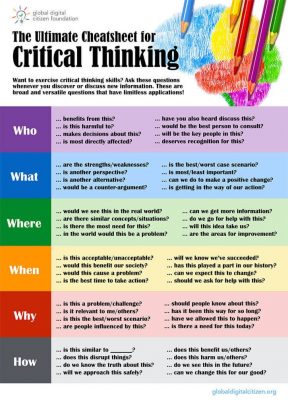
Open-ended questions help build your child’s thinking abilities
In addition to the questions above, we recommend that you get in the habit of using open-ended questions to get your kids thinking skills engaged and powering up.
“Did you have a nice time at the park?” is a closed-ended question because the child can say YES or NO, and be finished with it.
An open-ended question is more akin to, “Can you tell me about the most fun rides you went on at the theme park?”
That gives the child lots of room to think and describe to you all the things they experienced, responding to your question in a fuller way that engages their communication skills more.
Here is a great list of open-ended questions from TuturDoctor.co.uk that you can use to “develop your child’s curiosity, reasoning skills, creativity, critical thinking, and independence…”.
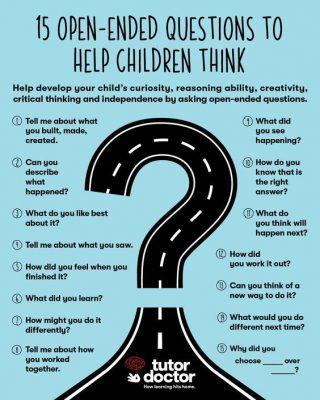
Wait! There’s more! 🙂
Questions to: Train Your Creative Brain
